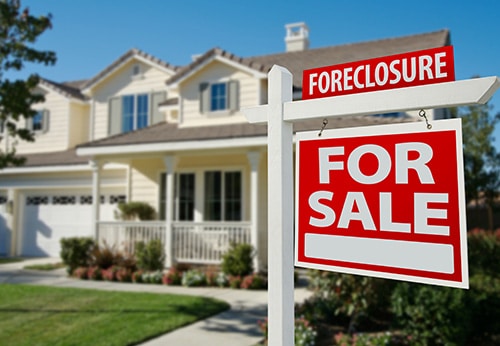 In Maryland, doing so would be very difficult. After the foreclosure sale has occurred, you can file what’s called exceptions to the foreclosure sale. You are very limited in this state as to what you can allege in those exceptions, but if you are successful, then the sale can be rescinded and you can, essentially, go back to the point in time when your house wasn’t sold. I would never counsel a client to wait that long, but we have had people come to us at that stage, with mixed success.
In Maryland, doing so would be very difficult. After the foreclosure sale has occurred, you can file what’s called exceptions to the foreclosure sale. You are very limited in this state as to what you can allege in those exceptions, but if you are successful, then the sale can be rescinded and you can, essentially, go back to the point in time when your house wasn’t sold. I would never counsel a client to wait that long, but we have had people come to us at that stage, with mixed success.
What Kind of Procedures Must The Foreclosing Party Or Bank Follow?
There is a whole process that happens in Maryland from the time when someone defaults on their mortgage to the sale and the aftermath. In a nutshell, the process begins when someone falls behind on their loan. About 45 days after that default, the lender will send something called a notice of intent to foreclose to the borrower, and that document has a lot of disclosures in it, such as who the lender is, who the servicer is, what’s owed, when the default occurred, etc. From there, the lender can file what’s called the order to docket, which is what really begins the case in the circuit court. That can be filed as soon as 45 days from when the notice of intent to foreclose is sent to the borrower, though the borrower has to have spent 90 days in default and be about three months behind on their mortgage payments before that case can be filed.
After the order to docket, the lender can file a preliminary or a final loss mitigation affidavit. If they opt to file a preliminary loss mitigation affidavit, they have to wait 28 days after filing the order to docket before they can file the final loss mitigation affidavit. The final loss mitigation affidavit must be filed with the court at least 30 days prior to the foreclosure sale. When the homeowner receives the final loss mitigation affidavit, it’ll come along with something called a request for mediation form, which can be filled out and sent back to the court, along with the payment of a $50 filing fee. The borrower typically has 25 days to do that, and then, they get a mediation within 60 days of that document going to an agency called the Office of Administrative Hearings. If they don’t file that document, however, then the next stage would be the sale, which could occur as soon as 45 days after that point.
The good thing about requesting a mediation with the circuit court is that, during that time, you can’t have your house foreclosed upon. It is a tactic to delay while you attempt to work things out. If you are a homeowner who has been submitting paperwork to your lender and you are not able to get anywhere, it can be very useful to have this mediation to review what’s been going on and what’s still needed to complete the evaluation, with the hope of working things out. We use mediation a lot of times for clients who are in this stage. If you don’t ask for a mediation, you send the form back, completed with $50; your case will be filed sooner, but you’ve lost that final opportunity to work things out.
If you request the mediation and it works out, then you would do whatever is necessary to complete the loss mitigation, and if that works out, the foreclosure case would be dismissed. If it’s not successful, then the mediator files a report that goes back to the court saying that the mediation failed and the foreclosure process resumes again.
I should note, though, that everything I’ve outlined so far applies to someone’s principal residence. Let’s say that you have an investment property that is in foreclosure and is already vacant. You are not eligible for a mediation, and the timeline would be shorter than what I’ve mentioned.
The next stage is the foreclosure sale. The sale date could be set for as soon as 15 days after the mediation concludes without an agreement or after the Office of Administrative Hearings files a report that no mediation was held because the homeowner didn’t turn in the form or because the property is not eligible.
Once that property is sold, the lender has 30 days to file what’s called a report of sale with the court. After the report of sale is filed, the clerk of the circuit court is required to issue a notice that the sale will be ratified within 30 days after that notice is issued. This is your window to file exceptions to this sale. Even if your house has been sold at the auction, it may not be too late. If, however, those 30 days go by and the court ratifies the foreclosure sale, then that is too late to do anything. Once the sale is ratified, it’s final. After the foreclosure is ratified, there are some things that happen regarding possession of the property by the lender or purchaser. If there is a settlement that occurs, the title changes hands and there’s an eviction process involving the sheriff’s office, which would be responsible for evicting whoever is still on the property.
Is It a Defense If Someone Says They Didn’t Receive a Foreclosure Notice or Summons?
It can be a defense, depending on the case. There definitely are notice requirements, but we’ve had some mixed success with using them. We had one case where we had proof that the notice went to the neighbor’s house instead of our client’s house, and the court still allowed the sale for various reasons. Lack of notice is generally not a great defense, in my experience, but it is something that we can raise. I would never count on that to win the day because you receive so many documents in the foreclosure case, which means they typically won’t set aside or rescind a sale just because you didn’t receive one along the way. They also publish notice in the local paper. In some cases, they’ll assume that you’ve seen that or have knowledge of it.
For more information on Getting Your Home Back After Foreclosure, an initial consultation is your next best step. Get the information and legal answers you are seeking by calling (443) 492-9003 today.

We Are Here To Help. Call Today For A No Cost Evaluation
(443) 492-9003

